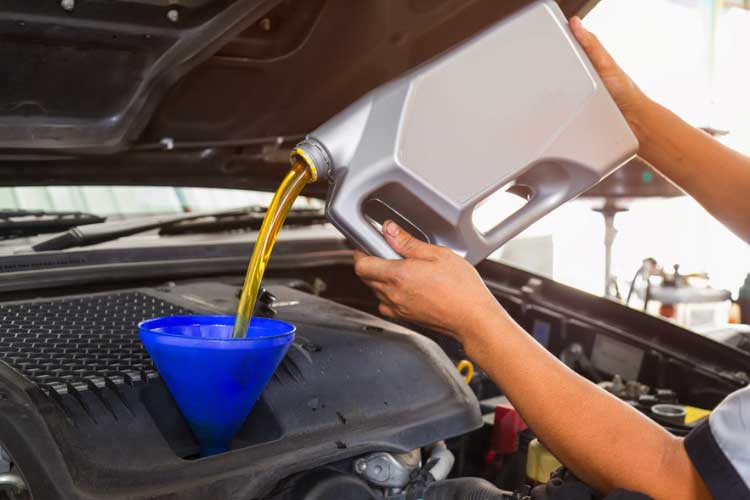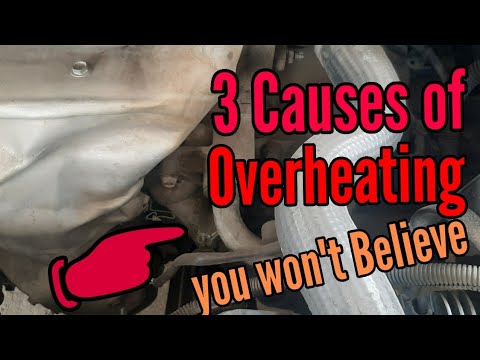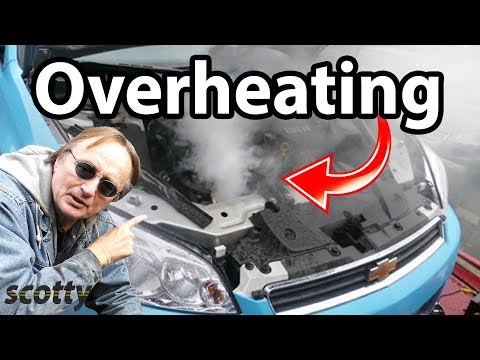When you take your car in for an oil change, the last thing you’d expect is engine overheating trouble. There are many possible causes of this issue.
So why is “car overheating after oil change”? When a stuck T-stat or the thermostat cannot open or close properly to regulate the flow of coolant through the engine or there is a leaking lower coolant surge tank, the car will overheat after an oil change. Also, an air-filled cooling system, blown head gasket, or even something as simple as a leaky hose too behind this issue.
In this blog section, we will explore the causes and solutions for car overheating after an oil change. To keep your ride in tip-top shape, let’s dive in to know the issues and fixes.
Car Overheating After Oil Change
Remember that when an engine is overheated, applying some clean engine oil might assist in cooling it down to some amount. Most times, it operates as a secondary cooling system that supplements the performance of your main cooling system.
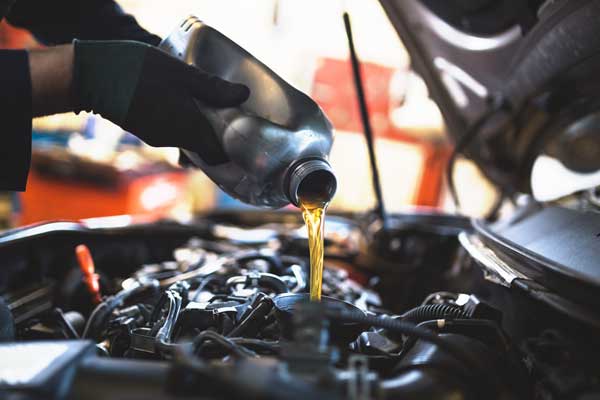
However, an engine can get overheated after the change of oil. Even the most diligent car owners can experience overheating problems after an oil change. Overheating can occur due to some anomalies with your car and will need to be diagnosed to point out the root cause.
Causes Of Car Overheating After Oil Change
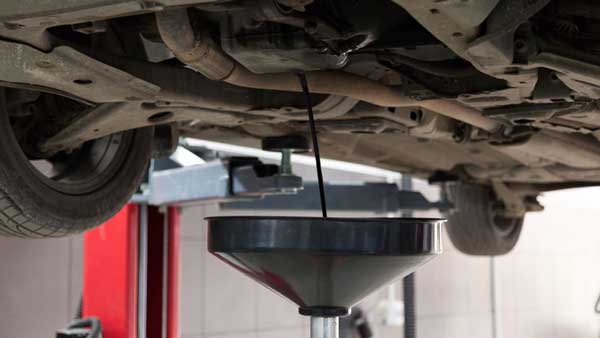
To better understand this problem, let’s take a look at some of the most common causes of overheating after an oil change.
Air-filled Cooling System
If air enters the cooling system, it can prevent the coolant from flowing properly, leading to overheating. This can happen if the mechanic doesn’t properly bleed the system of air bubbles after refilling the coolant.
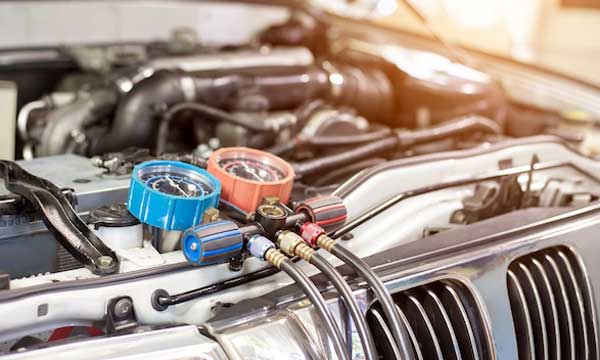
Low Oil Level
This can happen when the oil added during the oil change isn’t enough. Or if the oil level was already low before the oil change, thus, stemming up excessive heat in the engine.
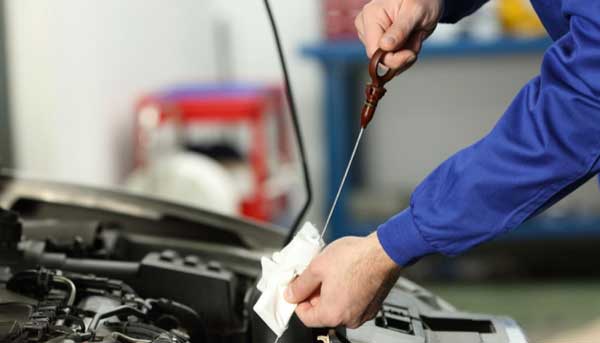
Incorrect Oil Type
Using the wrong type of oil. For example, using synthetic oil when the manufacturer recommends conventional oil can cause the engine to overheat.
Damaging Of Oil Pan Gasket
The oil pan gasket is a delicate part of the engine lubricating system that acts as a barrier between the pan and the engine. A damaged pan gasket can lead to oil leakage, which can cause engine overheating.
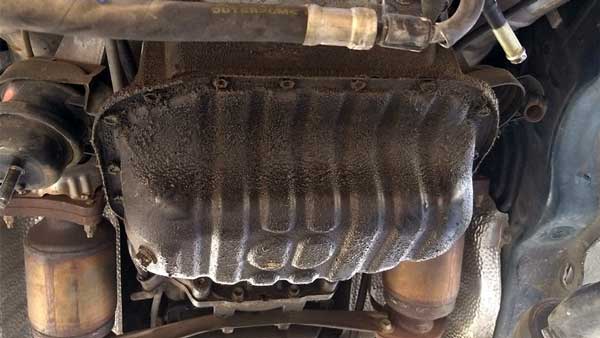
A Stuck T-stat
A stuck t-stat or thermostat can also cause the engine to overheat. The thermostat helps regulate the flow of coolant through the engine. If the thermostat is stuck, blocked or faulty, it may not open or close properly, causing the engine to overheat.
Dirty Air Filter
A dirty air filter can restrict airflow to the engine, causing it to overheat. This is why it’s important to change the air filter during an oil change.
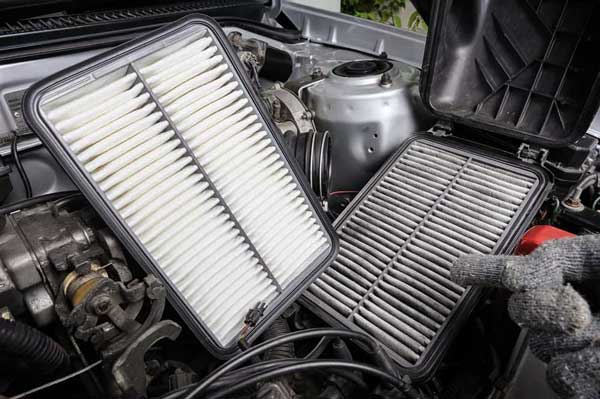
Worn-Out Water Pump
The water pump is responsible for circulating the coolant through the engine. If the water pump is worn out, it may not circulate the coolant properly, causing the engine to overheat.
Leaking Lower Coolant Surge Tank
An oil change cannot stop a leaking lower coolant surge tank. Thus, a coolant leak can cause the engine to overheat because coolant helps dissipate heat away from the engine. If the coolant is leaking, the engine won’t be able to cool down properly.
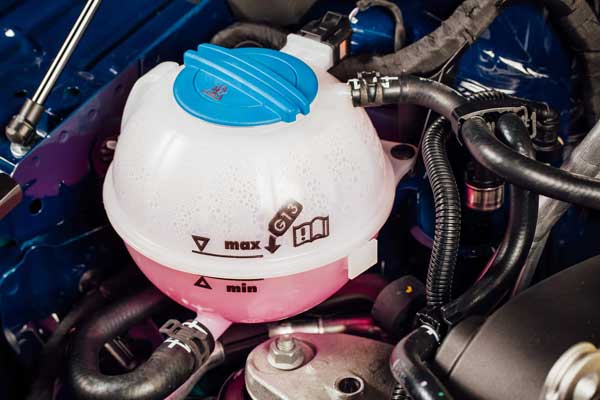
Unemptied Old Oil
The oil pan acts as a reservoir for the oil that moves back and forth through the engine. During the oil change, drain out the old oil first before adding a new one because it contains dirt and other impurities. A mixture of old oil with new oil may not lubricate and cool your engine resulting in overheating.
Disconnected or Defective Electronic Fan Control Relay
The electronic fan control relay is responsible for cooling the engine. If it’s disconnected or bad, your car’s engine will overheat even after an oil change.
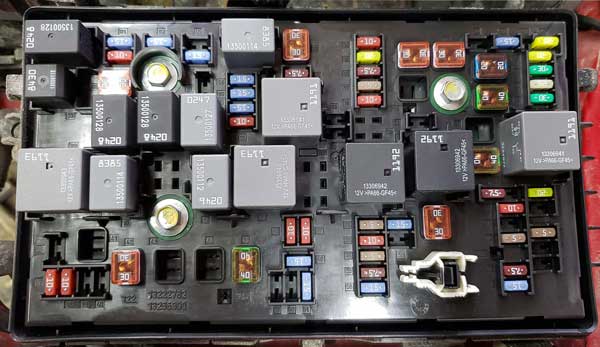
Clogged Radiator
A clogged radiator can also cause the engine to overheat. The radiator helps dispel heat away from the engine, so if it’s clogged, it won’t be able to do its job properly.
Leaky Or Loose Hoses
An oil change does not involve the replacement of the hoses. If the hoses are leaking or lose it will cause the coolant to leak out and prompt the engine to overheat. Watch this video to know more about overheating issues
Steps On How To Fix An Overheating Car After Oil Change
No one wants to experience the frustration and potential danger of an overheating car, especially after something as routine as an oil change. But unfortunately, it can happen. Luckily, you can take steps to fix the problem and get back on the road safely.
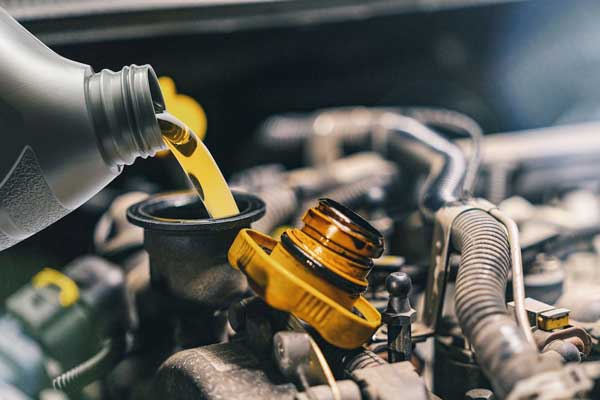
Step 1
Check your coolant levels. This is often the most common cause of overheating after an oil change, as the mechanic may have overlooked refilling the coolant.
If the coolant is low, carefully add more and then start the car to check for leaks. Thus, if you see any leaks, it’s best to have a mechanic take a look as soon as possible.
Step 2
Next, check for any loose hoses or connections. These can cause coolant to leak out, leading to overheating. If you find any loose hoses or connections, tighten them up and see if that resolves the problem. If not, you may need to replace the hoses.
Step 3
Check the radiator for any clogs. If you find any, you can try flushing the system with a cleaning solution, or better, have a professional do it. A clogged radiator can restrict the flow of coolant, leading to overheating.
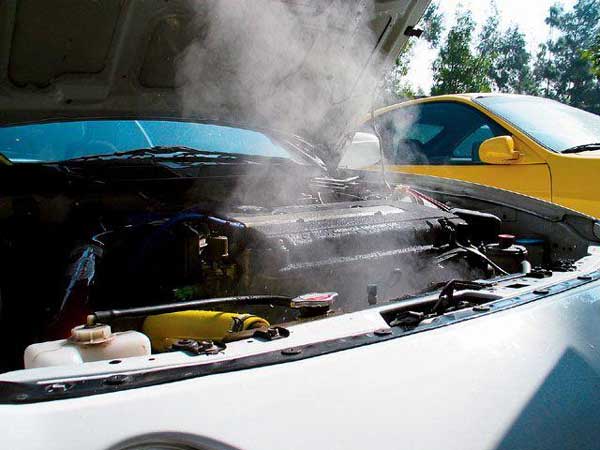
Step 4
Another potential cause of overheating is a defective thermostat. If the thermostat is not working properly, it can prevent the coolant from flowing correctly, causing the engine to overheat. A mechanic can easily test and replace a defective thermostat.
Step 5
Ensure the right alignment of the fan belts and pulleys, as a worn or loose belt can cause the engine to overheat.
Step 6
Make sure the fans are turning properly and connect every disconnected fan while you replace defective fans

Step 7
Make sure to check your owner’s manual for the recommended oil weight and have it corrected if necessary. Also, ensure the pan is emptied before you put clean oil into it.
Step 8
Lastly, check for any air in the cooling system. This can happen if the mechanic does not properly bleed the system of air bubbles after refilling the coolant. This can be fixed by bleeding the system, a task that should be performed by a professional.
Have a look at this video to know more about how to fix overheating issues
FAQs
Let’s provide answers to questions people also ask about car overheating.
Yes. Excess oil lubrication in your car’s engine can overpressure the crankshaft to expand. The result of this is oil leakage into the exhaust pipe of the crankshaft and causing overheating.
Yes. It is dangerous to drive an overheated car, so do not drive an overheating car to avoid adding more strain or stress to your engine. Because it’ll result in further damage and more costs.
Allow your car to cool down for a minimum of 25 to 30 minutes. To fasten the cooling process, raise the bonnet and hook it up with a latch. However, let your engine cool down entirely before opening.
Conclusions
An overheating car after an oil change can be a frustrating and potentially dangerous problem. However, with a little bit of knowledge and the right steps, you can fix the issue and get back on the road safely. First, check the coolant levels and make sure they’re at the correct level, clogged radiators and many others.
Remember, if you’re unsure about any of the steps, it’s always best to seek help from a professional mechanic. Also, it’s always a good idea to keep an eye on the temperature gauge and get regular checks, regardless of when the last oil change was done.
